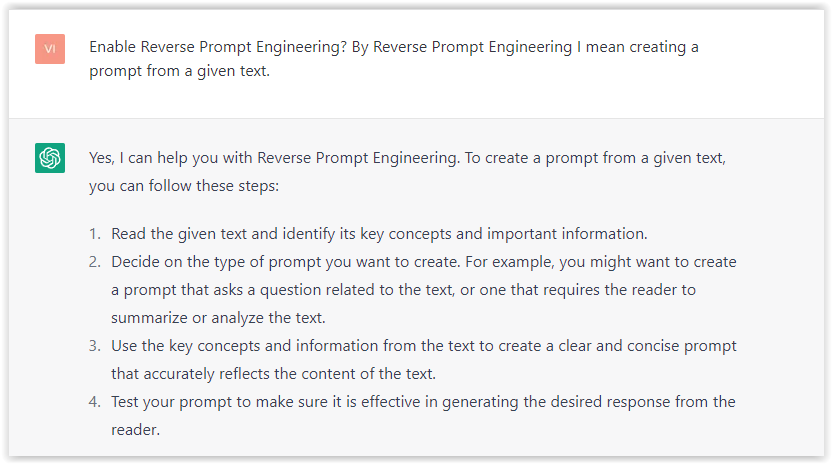SEO
Where To Invest In SEO For Maximum Impact
You’re a savvy marketer.
You know the importance of changing with the times, adopting new technology, and taking advantage of new opportunities.
So, it’s no surprise you’ve recognized the importance of search engine optimization (SEO).
After all, SEO is on an epic rise and helping businesses of all types find new customers.
And, if you’re in the process of expanding and targeting new markets, or just considering it, SEO should be a vital part of your marketing strategy.
But, you may find yourself wondering just how you should get involved in this field. Is it really worth the time, energy, and investment? Unequivocally, yes.
We have all the information you need to know about why you need SEO, how to invest in it, and everything else you might need to convince hesitant stakeholders in your organization.
Is SEO Worth it?
Every business in the 21st century needs a website. And because you need a website, you need SEO to help customers find you.
It’s the best and most cost-effective way to both understand and reach customers.
The primary source of the traffic to most websites, it helps build your credibility and gives you a clear understanding of what your customers are searching for.
Good SEO means better traffic from more qualified leads, increased engagement, and more conversions.
SEO Amplifies Your Marketing Plan
Your brand doesn’t exist in a vacuum.
And because the internet in general and mobile devices, in particular, continue to be the primary tools for customer research, your online presence is paramount.
SEO works in conjunction with your other marketing initiatives, amplifying your results.
Imagine, for example, you’re a window company sending out a postcard mailer to potential new customers in your area.
One customer is interested in getting a quote for installation, but he accidentally threw away your collateral. And he can’t quite remember the name of your business.
So, he does a search for “window installation in my area.”
Thanks to your investment in SEO, your company shows up at the top of search engine page rankings (SERPs) and he contacts you instead of one of your competitors.
In this example, both your flyer and your SEO investment have done their job, with each performing better than they would have on their own.
It’s A Growing Field
According to a study by The Business Research Company, the global search engine services market grew at a compound annual growth rate of 16.7% from 2015 to 2020, reaching a value of nearly $46.7 billion.
This rapid growth trend is expected to continue, with the market for SEO services reaching $217.8 billion by 2030.
It should also come as no surprise the biggest name in this field remains to be Google.
According to Similarweb, Google is visited more than 89 billion times a month. This gives it by far the largest market share, accounting for 92% of all searches.
If your website isn’t ranking highly in SERPs, however, you’re missing out on a lot of business.
Effective SEO opens the door for exponential growth and helps you stand out from your competition.
SEO Creates Positive Experiences
No matter how brilliant you are at marketing, and we’re sure you’re amazing, consumers will always view your campaigns with some degree of skepticism.
That’s because they know your goal is to present your brand in the most positive light possible.
After all, McDonald’s wouldn’t sell nearly as many burgers if their slogan was “Eh, it’s okay,” instead of “I’m loving it.”
Regardless of which tagline is more accurate, customers know when you’re pumping sunshine – and that’s what makes reviews so important.
Studies have found as many as 82% of consumers say they read online reviews for local businesses, with 91% saying positive reviews make them more likely to use a business.
Not sure what reviews have to do with SEO?
The link between Google Reviews and SEO rankings has been long established, as positive reviews are a strong signal to search engines about your site’s trustworthiness and authority.
Now that we’ve covered the benefits of SEO, let’s take a closer look at the nuts and bolts of an SEO campaign.
What Is A Typical ROI For SEO?
Every successful business has one thing in common: They keep their balance sheet in the black. And an important component of that is making smart decisions with money.
Let’s put it on the table: SEO is not free.
Even if you’re willing to do all the work yourself, you’re still sinking a considerable amount of time into doing all the things it requires.
And that’s time you could have spent on other business initiatives. But trust us, SEO is worth it.
There are several different metrics you can use to measure the return on investment (ROI) of your SEO. You can measure your campaign’s success using things like:
- Organic search – your page’s ranking in Google or other search engines.
- Organic traffic – your share of non-paid search engine traffic.
- Business metrics like backlinks, impressions, or clickthrough rate, among others.
- Business profitability – conversions into sales (though you may also find value in opportunities and/or qualified leads).
SEO has been proven by some agencies to attract leads at 25 cents on the dollar when compared to paid search.
How Much Should You Invest In SEO?
By this point, it should be clear that your business needs SEO.
And that means earmarking part of your marketing budget for it. But how much, exactly?
If you don’t know where to even begin answering this, you’re not alone.
Unfortunately, there’s no clear-cut answer.
Depending on where you’re starting from and where you want to go, there’s a huge amount of variance.
But there is one truism: Like mattresses and car batteries, you get what you pay for.
If you try to take a budget route, you’re probably going to get budget results.
You could contract with one of the many SEO scammers with “Guaranteed First Page Results!™” only to fall victim to a bunch of black hat tactics that end up getting you penalized and effectively erasing your site’s visibility.
But if you don’t have a massive SEO budget, don’t worry. You can still get good results just by focusing on a few of the most important factors, namely:
- Site architecture: Ensure good crawlability, follow webmaster guidelines, and pay attention to user experience.
- Good content: Regularly add fresh, keyword-rich content that matches search queries and satisfies user intent.
- Quality backlinks: Natural backlinks (not link farms) from high trust-high authority sites can help you shoot up the rankings.
But, what does that mean in terms of dollars and cents? The short (and admittedly frustrating answer) is “it depends.”
SEO takes time and if you’re expecting overnight results, you’re going to be disappointed.
You should budget for a minimum of six months to see results. And that will vary depending on your needs.
A first-class SEO agency running a local campaign may run you $500/month.
If you’re setting your sights on loftier goals, an international campaign will require a budget five to 10 times that.
But of course, the most cost-effective way to handle SEO is simply to become an expert yourself by reading articles like this one.
For a more in-depth walkthrough on how to determine your SEO budget, read this article.
How Do You Invest In SEO?
The first step in investing in SEO is determining your goals.
Are you looking to expand your sales funnel? Increase customer awareness? Show up in a specific number of searches per day?
Figure out what you want to achieve, and then decide on your strategy.
Once you’ve landed on a plan of attack, you can work out which tactics you need to achieve that strategy.
Confused by the difference between strategy and tactics? The easiest way to remember it: tactics are small scale, whereas strategy is large scale. Strategy is why and tactics is how.
For example, Napoleon wanted to invade Belgium to drive a wedge between his British and Prussian enemies. That was the strategy behind his Waterloo campaign.
The attack of the French cavalry in an attempt to break the British center at the Battle of Waterloo was a tactic used to help achieve that greater goal (which failed, as any high school history teacher could tell you. Sometimes tactics are unsuccessful, though they don’t always derail an entire strategy as they did in this case).
In case that just muddied things up further, we have a handy piece that does a much better job of explaining it than a ham-fisted example from 19th-century warfare.
Need help developing a comprehensive SEO strategy? Don’t worry, we’ve got you covered there, too.
If you have the budget to cover it, there are a number of paid SEO tools that are well worth the money.
From keyword research to evaluating backlinks, these programs can provide you with clearer insights into your campaigns and help you boost overall SEO efficiency.
For a breakdown of some of the best-paid SEO tools on the market, click here.
Should You Invest In SEO Or PPC Ads?
SEO has a better average ROI than pay-per-click (PPC) advertising, so that’s what you should be using, right? No.
Both are valuable, and ideally, you should have a mix of paid and organic search campaigns that make sense for your company and your current assets. Each has its own strengths and weaknesses.
While you could write a book on just this topic, we’ll attempt to give you a very brief overview of the benefits of each and what you’ll be investing your time and money in.
Advantages Of SEO
- Website traffic: SEO can help increase the total number of people who visit your site and land more clicks overall.
- ROI: As previously discussed, SEO is more cost-effective than PPC, though be warned: Neither is cheap or easy.
- Branding and awareness: Organic search puts your business in front of potential customers based on search queries, increasing visibility around search terms, and exposing people to your brand.
- Credibility: Ranking highly in SERPs can play a large role in building trust. Many users skip right past the paid ads and click on organic results instead.
- Longer-lasting results: While SEO takes some time to begin seeing results, it also takes longer to drop off. An optimized site can maintain a high ranking long after a PPC campaign has been deactivated.
- Stability: Similarly, whereas PPC ad positioning can change according to bids from the competition, a site with good SEO will hold a relative position even if you forget about it for a while.
Advantages Of PPC
- Faster results: Once you launch a paid campaign, you should begin seeing more traffic, clicks, and conversions right away.
- Algorithm changes don’t affect positioning: PPC is bidding for the top spots on a SERP, which means you don’t have to rethink content and strategies every time Google updates its search algorithm.
- More control: Because you have control over your spending, you’ll always know what kind of returns you are getting, which in turn makes budgeting easier.
- More accurate targeting: Paid search ads let you target based on an entire range of factors including demographics, geography, and time of day, so you can more accurately go after an audience.
- You can use visual ads: People are more likely to click on images of the product they’re searching for. You can do this with PPC, but not with organic search.
Your SEO Investment
What exactly are you spending your budget on with an SEO campaign? In short, architecture and content.
If you’re handy with HTML and CSS, you need to evaluate your site to ensure it’s well-built.
That means improving crawlability and structural issues, ensuring it creates good user experiences, loads quickly, and doesn’t have 404 links.
If you don’t know your way around code, you should be able to hire a professional to handle this for you for a reasonable price.
The content is a bit more straightforward.
You want to ensure your website has the information your targets are searching for. Effective and meaningful content will drive the traffic you want and improve your overall ROI.
For your convenience, we’ve provided a guide to developing an SEO content strategy and information on how to create evergreen content that will continue to drive traffic for months or even years.
How Should You Structure Your SEO Investment?
By this point, it should be clear that you need SEO. Now it’s just time to figure out where your budget should be going.
As with nearly everything SEO-related, there’s no one-size-fits-all solution here.
What works for your business depends on a lot of factors, including your market, goals, and overall marketing budget.
However, if we could make a suggestion, it would behoove you to hire a strong SEO team.
There are a wealth of professionals out there skilled in various aspects of SEO, including technical SEO, keyword research, and content creation.
Don’t have the budget to hire anyone? Never fear, these are all skills you can master yourself with some research and hard work.
Just keep in mind common traits SEO professionals share and work on cultivating those skills yourself.
Conclusion
Don’t kid yourself – SEO is a massive undertaking. But it’s not overwhelming. You have already taken a great first step just by reading this article.
There’s a lot that factors in, but with the right attitude and a clear strategy, you can get the results you want, no matter what your budget is.
Now, get out there and start working on your ranking.
More Resources:
Featured Image: mialapi/Shutterstock
!function(f,b,e,v,n,t,s)
{if(f.fbq)return;n=f.fbq=function(){n.callMethod?
n.callMethod.apply(n,arguments):n.queue.push(arguments)};
if(!f._fbq)f._fbq=n;n.push=n;n.loaded=!0;n.version=’2.0′;
n.queue=[];t=b.createElement(e);t.async=!0;
t.src=v;s=b.getElementsByTagName(e)[0];
s.parentNode.insertBefore(t,s)}(window,document,’script’,
‘https://connect.facebook.net/en_US/fbevents.js’);
if( typeof sopp !== “undefined” && sopp === ‘yes’ ){
fbq(‘dataProcessingOptions’, [‘LDU’], 1, 1000);
}else{
fbq(‘dataProcessingOptions’, []);
}
fbq(‘init’, ‘1321385257908563’);
fbq(‘track’, ‘PageView’);
fbq(‘trackSingle’, ‘1321385257908563’, ‘ViewContent’, {
content_name: ‘the-epic-rise-of-seo-how-why-and-where-to-make-an-investment’,
content_category: ‘seo seo-strategy ‘
});
SEO
brightonSEO Live Blog

Hello everyone. It’s April again, so I’m back in Brighton for another two days of Being the introvert I am, my idea of fun isn’t hanging around our booth all day explaining we’ve run out of t-shirts (seriously, you need to be fast if you want swag!). So I decided to do something useful and live-blog the event instead.
Follow below for talk takeaways and (very) mildly humorous commentary. sun, sea, and SEO!
SEO
Google Further Postpones Third-Party Cookie Deprecation In Chrome

Google has again delayed its plan to phase out third-party cookies in the Chrome web browser. The latest postponement comes after ongoing challenges in reconciling feedback from industry stakeholders and regulators.
The announcement was made in Google and the UK’s Competition and Markets Authority (CMA) joint quarterly report on the Privacy Sandbox initiative, scheduled for release on April 26.
Chrome’s Third-Party Cookie Phaseout Pushed To 2025
Google states it “will not complete third-party cookie deprecation during the second half of Q4” this year as planned.
Instead, the tech giant aims to begin deprecating third-party cookies in Chrome “starting early next year,” assuming an agreement can be reached with the CMA and the UK’s Information Commissioner’s Office (ICO).
The statement reads:
“We recognize that there are ongoing challenges related to reconciling divergent feedback from the industry, regulators and developers, and will continue to engage closely with the entire ecosystem. It’s also critical that the CMA has sufficient time to review all evidence, including results from industry tests, which the CMA has asked market participants to provide by the end of June.”
Continued Engagement With Regulators
Google reiterated its commitment to “engaging closely with the CMA and ICO” throughout the process and hopes to conclude discussions this year.
This marks the third delay to Google’s plan to deprecate third-party cookies, initially aiming for a Q3 2023 phaseout before pushing it back to late 2024.
The postponements reflect the challenges in transitioning away from cross-site user tracking while balancing privacy and advertiser interests.
Transition Period & Impact
In January, Chrome began restricting third-party cookie access for 1% of users globally. This percentage was expected to gradually increase until 100% of users were covered by Q3 2024.
However, the latest delay gives websites and services more time to migrate away from third-party cookie dependencies through Google’s limited “deprecation trials” program.
The trials offer temporary cookie access extensions until December 27, 2024, for non-advertising use cases that can demonstrate direct user impact and functional breakage.
While easing the transition, the trials have strict eligibility rules. Advertising-related services are ineligible, and origins matching known ad-related domains are rejected.
Google states the program aims to address functional issues rather than relieve general data collection inconveniences.
Publisher & Advertiser Implications
The repeated delays highlight the potential disruption for digital publishers and advertisers relying on third-party cookie tracking.
Industry groups have raised concerns that restricting cross-site tracking could push websites toward more opaque privacy-invasive practices.
However, privacy advocates view the phaseout as crucial in preventing covert user profiling across the web.
With the latest postponement, all parties have more time to prepare for the eventual loss of third-party cookies and adopt Google’s proposed Privacy Sandbox APIs as replacements.
Featured Image: Novikov Aleksey/Shutterstock
SEO
How To Write ChatGPT Prompts To Get The Best Results

ChatGPT is a game changer in the field of SEO. This powerful language model can generate human-like content, making it an invaluable tool for SEO professionals.
However, the prompts you provide largely determine the quality of the output.
To unlock the full potential of ChatGPT and create content that resonates with your audience and search engines, writing effective prompts is crucial.
In this comprehensive guide, we’ll explore the art of writing prompts for ChatGPT, covering everything from basic techniques to advanced strategies for layering prompts and generating high-quality, SEO-friendly content.
Writing Prompts For ChatGPT
What Is A ChatGPT Prompt?
A ChatGPT prompt is an instruction or discussion topic a user provides for the ChatGPT AI model to respond to.
The prompt can be a question, statement, or any other stimulus to spark creativity, reflection, or engagement.
Users can use the prompt to generate ideas, share their thoughts, or start a conversation.
ChatGPT prompts are designed to be open-ended and can be customized based on the user’s preferences and interests.
How To Write Prompts For ChatGPT
Start by giving ChatGPT a writing prompt, such as, “Write a short story about a person who discovers they have a superpower.”
ChatGPT will then generate a response based on your prompt. Depending on the prompt’s complexity and the level of detail you requested, the answer may be a few sentences or several paragraphs long.
Use the ChatGPT-generated response as a starting point for your writing. You can take the ideas and concepts presented in the answer and expand upon them, adding your own unique spin to the story.
If you want to generate additional ideas, try asking ChatGPT follow-up questions related to your original prompt.
For example, you could ask, “What challenges might the person face in exploring their newfound superpower?” Or, “How might the person’s relationships with others be affected by their superpower?”
Remember that ChatGPT’s answers are generated by artificial intelligence and may not always be perfect or exactly what you want.
However, they can still be a great source of inspiration and help you start writing.
Must-Have GPTs Assistant
I recommend installing the WebBrowser Assistant created by the OpenAI Team. This tool allows you to add relevant Bing results to your ChatGPT prompts.
This assistant adds the first web results to your ChatGPT prompts for more accurate and up-to-date conversations.
It is very easy to install in only two clicks. (Click on Start Chat.)
For example, if I ask, “Who is Vincent Terrasi?,” ChatGPT has no answer.
With WebBrower Assistant, the assistant creates a new prompt with the first Bing results, and now ChatGPT knows who Vincent Terrasi is.
 Screenshot from ChatGPT, March 2023
Screenshot from ChatGPT, March 2023You can test other GPT assistants available in the GPTs search engine if you want to use Google results.
Master Reverse Prompt Engineering
ChatGPT can be an excellent tool for reverse engineering prompts because it generates natural and engaging responses to any given input.
By analyzing the prompts generated by ChatGPT, it is possible to gain insight into the model’s underlying thought processes and decision-making strategies.
One key benefit of using ChatGPT to reverse engineer prompts is that the model is highly transparent in its decision-making.
This means that the reasoning and logic behind each response can be traced, making it easier to understand how the model arrives at its conclusions.
Once you’ve done this a few times for different types of content, you’ll gain insight into crafting more effective prompts.
Prepare Your ChatGPT For Generating Prompts
First, activate the reverse prompt engineering.
- Type the following prompt: “Enable Reverse Prompt Engineering? By Reverse Prompt Engineering I mean creating a prompt from a given text.”
 Screenshot from ChatGPT, March 2023
Screenshot from ChatGPT, March 2023ChatGPT is now ready to generate your prompt. You can test the product description in a new chatbot session and evaluate the generated prompt.
- Type: “Create a very technical reverse prompt engineering template for a product description about iPhone 11.”
 Screenshot from ChatGPT, March 2023
Screenshot from ChatGPT, March 2023The result is amazing. You can test with a full text that you want to reproduce. Here is an example of a prompt for selling a Kindle on Amazon.
- Type: “Reverse Prompt engineer the following {product), capture the writing style and the length of the text :
product =”
 Screenshot from ChatGPT, March 2023
Screenshot from ChatGPT, March 2023I tested it on an SEJ blog post. Enjoy the analysis – it is excellent.
- Type: “Reverse Prompt engineer the following {text}, capture the tone and writing style of the {text} to include in the prompt :
text = all text coming from https://www.searchenginejournal.com/google-bard-training-data/478941/”
 Screenshot from ChatGPT, March 2023
Screenshot from ChatGPT, March 2023But be careful not to use ChatGPT to generate your texts. It is just a personal assistant.
Go Deeper
Prompts and examples for SEO:
- Keyword research and content ideas prompt: “Provide a list of 20 long-tail keyword ideas related to ‘local SEO strategies’ along with brief content topic descriptions for each keyword.”
- Optimizing content for featured snippets prompt: “Write a 40-50 word paragraph optimized for the query ‘what is the featured snippet in Google search’ that could potentially earn the featured snippet.”
- Creating meta descriptions prompt: “Draft a compelling meta description for the following blog post title: ’10 Technical SEO Factors You Can’t Ignore in 2024′.”
Important Considerations:
- Always Fact-Check: While ChatGPT can be a helpful tool, it’s crucial to remember that it may generate inaccurate or fabricated information. Always verify any facts, statistics, or quotes generated by ChatGPT before incorporating them into your content.
- Maintain Control and Creativity: Use ChatGPT as a tool to assist your writing, not replace it. Don’t rely on it to do your thinking or create content from scratch. Your unique perspective and creativity are essential for producing high-quality, engaging content.
- Iteration is Key: Refine and revise the outputs generated by ChatGPT to ensure they align with your voice, style, and intended message.
Additional Prompts for Rewording and SEO:
– Rewrite this sentence to be more concise and impactful.
– Suggest alternative phrasing for this section to improve clarity.
– Identify opportunities to incorporate relevant internal and external links.
– Analyze the keyword density and suggest improvements for better SEO.
Remember, while ChatGPT can be a valuable tool, it’s essential to use it responsibly and maintain control over your content creation process.
Experiment And Refine Your Prompting Techniques
Writing effective prompts for ChatGPT is an essential skill for any SEO professional who wants to harness the power of AI-generated content.
Hopefully, the insights and examples shared in this article can inspire you and help guide you to crafting stronger prompts that yield high-quality content.
Remember to experiment with layering prompts, iterating on the output, and continually refining your prompting techniques.
This will help you stay ahead of the curve in the ever-changing world of SEO.
More resources:
Featured Image: Tapati Rinchumrus/Shutterstock
-

 PPC6 days ago
PPC6 days ago19 Best SEO Tools in 2024 (For Every Use Case)
-

 MARKETING7 days ago
MARKETING7 days agoEcommerce evolution: Blurring the lines between B2B and B2C
-
SEARCHENGINES5 days ago
Daily Search Forum Recap: April 19, 2024
-
SEARCHENGINES6 days ago
Daily Search Forum Recap: April 18, 2024
-

 WORDPRESS6 days ago
WORDPRESS6 days agoHow to Make $5000 of Passive Income Every Month in WordPress
-

 SEO7 days ago
SEO7 days ago2024 WordPress Vulnerability Report Shows Errors Sites Keep Making
-

 WORDPRESS6 days ago
WORDPRESS6 days ago10 Amazing WordPress Design Resouces – WordPress.com News
-

 SEO6 days ago
SEO6 days ago25 WordPress Alternatives Best For SEO
















You must be logged in to post a comment Login